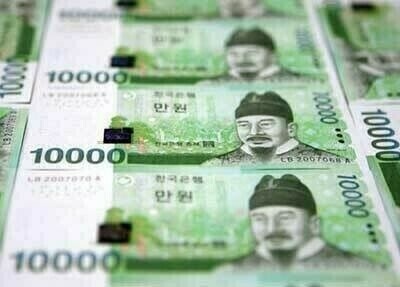Most Asia currencies fall ahead of US inflation data, Philippine markets in focus – Markets

Most emerging Asian market currencies and stock benchmarks got off to soft start on Monday with the Philippines’ peso and shares among those making declines ahead of a monetary policy decision later in the week.
The peso retreated 0.4% to 56.090 per dollar, while equities in Manila fell 0.7%.
Last Thursday, data showed the Philippine economy rebounded strongly in the third quarter but the central bank said policy is expected to remain “tighter for longer” as inflation is still a major challenge.
That said, most analysts expect no change to interest rates from the Bangko Sentral ng Pilipinas on Thursday.
HSBC analysts said in a note that it was, however, likely to maintain its “hawkish rhetoric given upside risks to inflation”.
Other currencies also lost ground ahead of US inflation data on Tuesday.
“We expect a stronger (US) core inflation read tomorrow … which may reignite a sell-off in US Treasuries and give a boost to the USD,” Alex Loo, macro strategist at TD Securities said.
“We expect Asian currencies to trade on the backfoot on renewed USD strength.”
The South Korean won and the Thai baht each declined 0.6%. The Indonesian rupiah and the Chinese yuan slipped 0.2%.
The US dollar index was steady at 105.810 as of 0440 GMT, while the 10-year benchmark yield ticked higher to 4.6598%.
Asian currencies fall on firm dollar
Among regional equities markets, shares in Thailand fell 0.7% while shares in South Korea and China edged 0.2%Reuters
Taiwan shares advanced 1.0% to hit their highest level since Sept. 18. Shares in Indonesia climbed 0.4%.
Markets participants are also awaiting consumer price data from India later in the day for clues to the interest rate outlook in Asia’s third biggest economy.
The pace of India’s consumer price inflation likely eased further to a four-month low of 4.80% in October, according to a Reuters poll.



